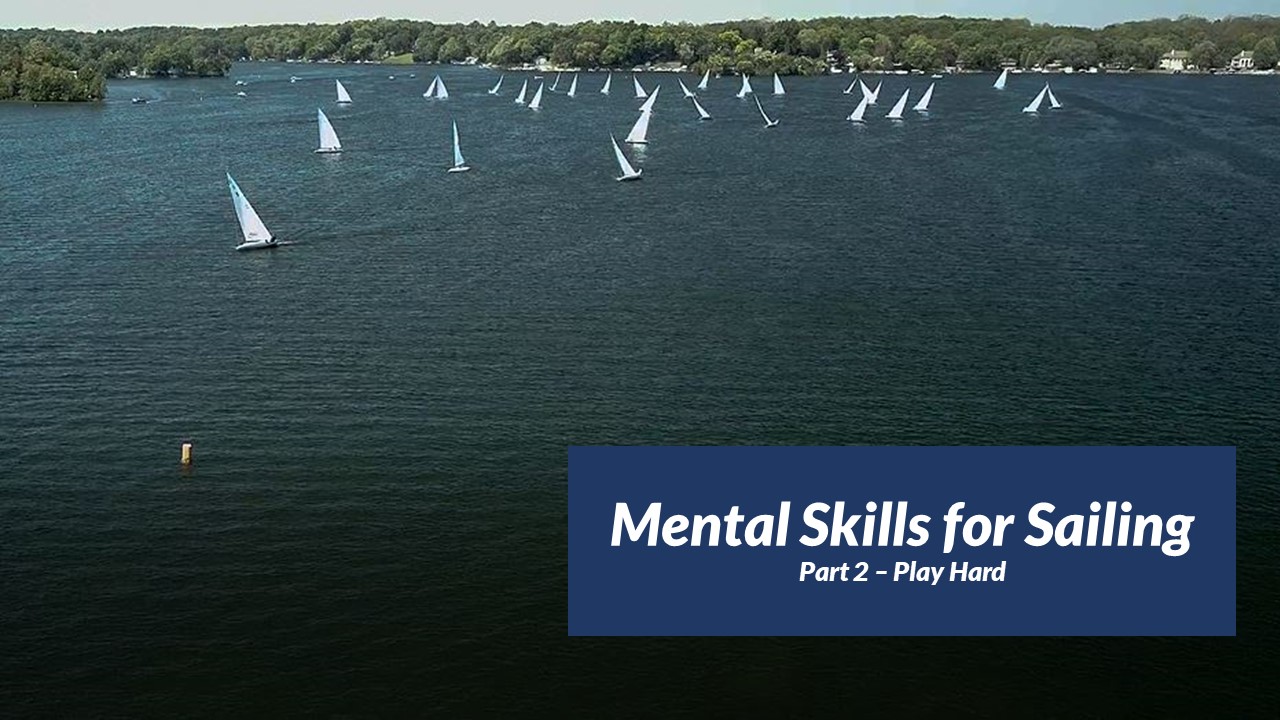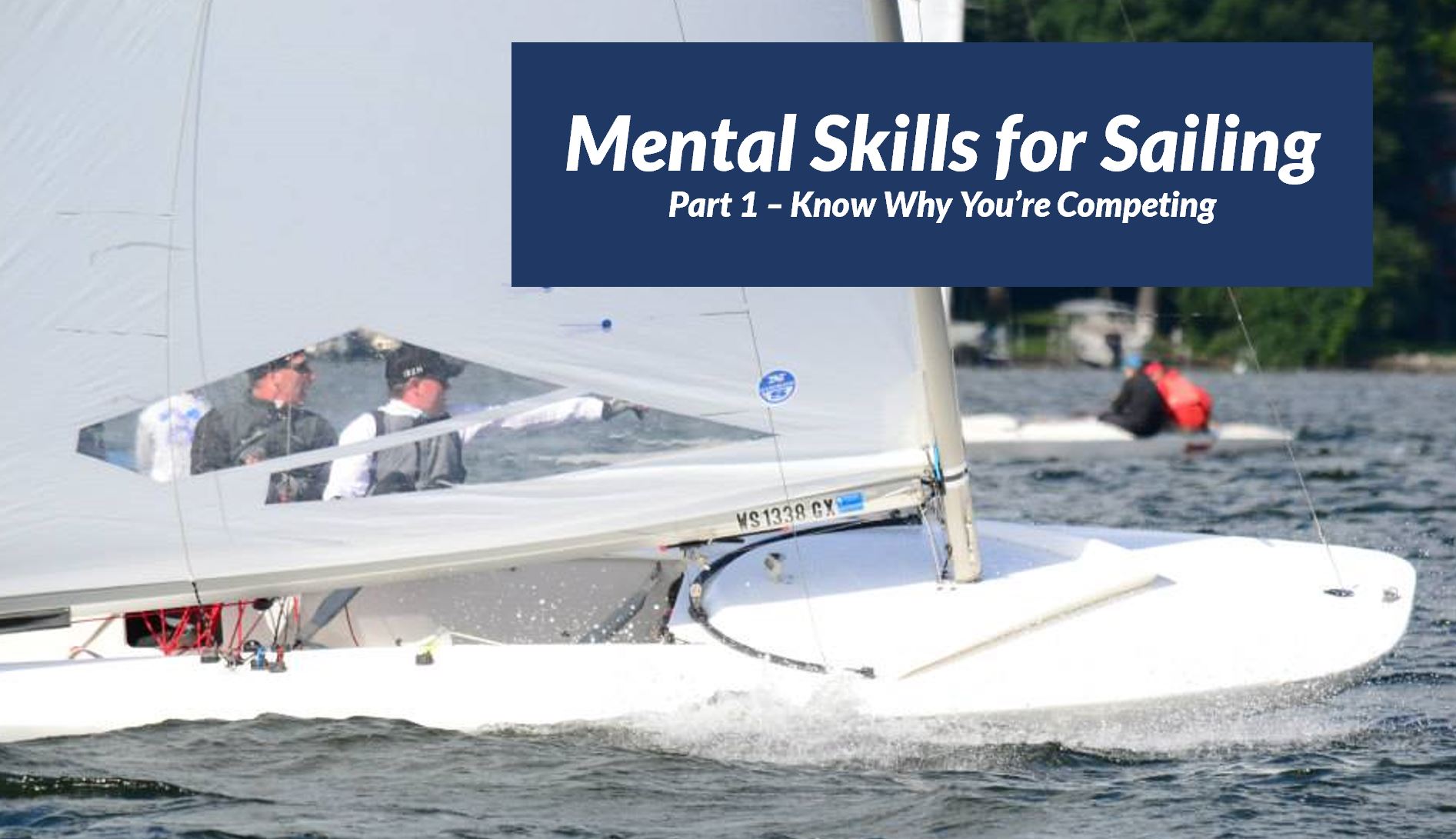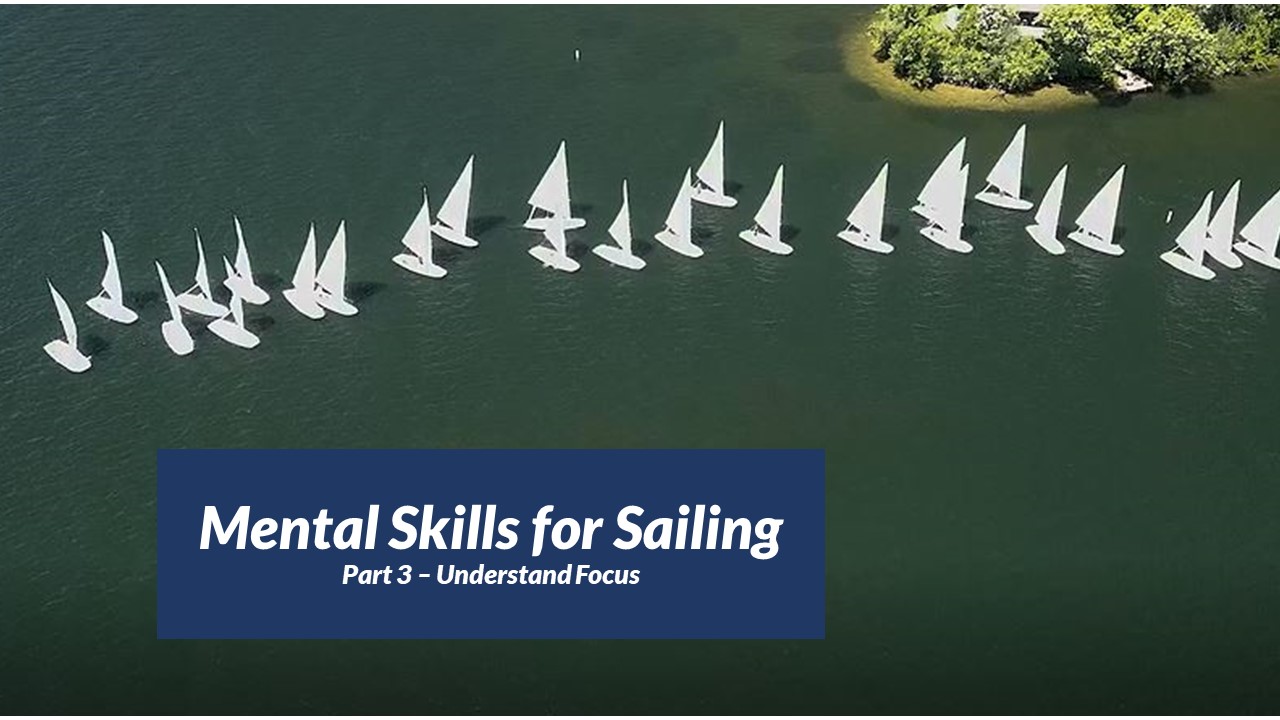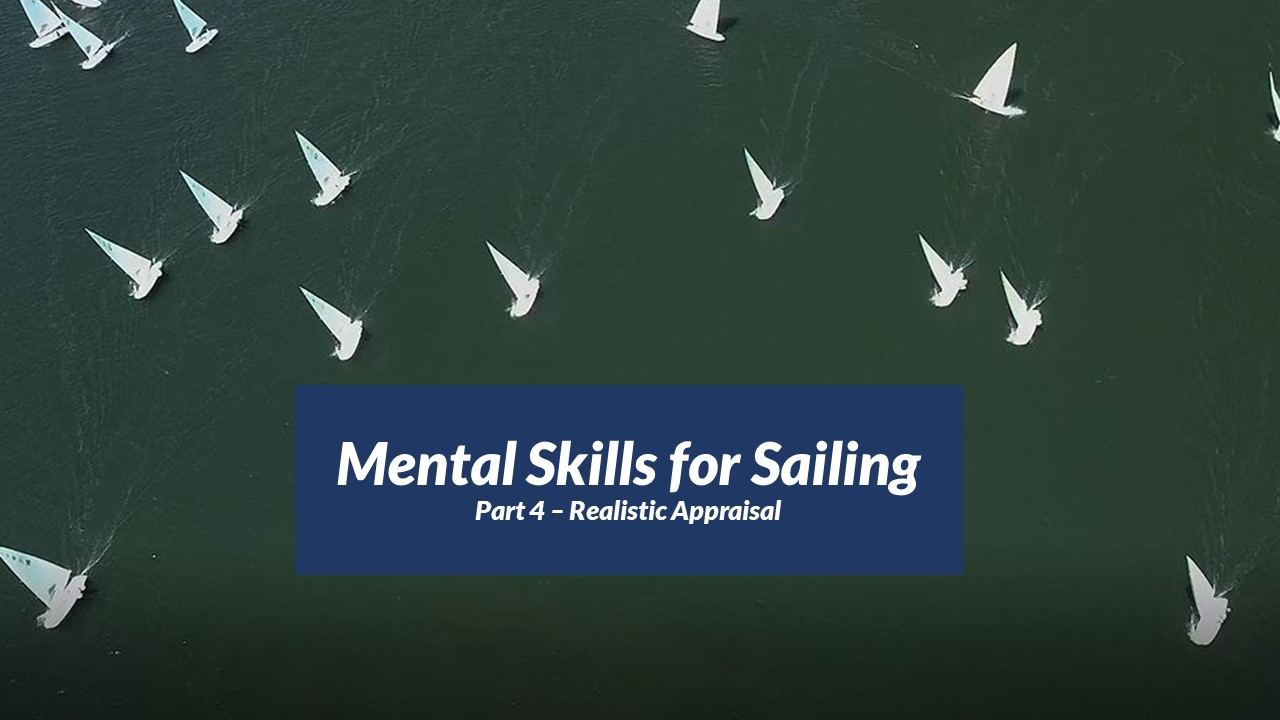I want to bring that childlike approach every night – just go out there and have fun. I want to play like a kid, for fun but with intensity. Play to win.
Chris Bosch
In Part 2 of our series on mental skills, we explore what playing hard means in sailing. If we get too cerebral about racing, we lose the competitive edge and miss the fun of going all out.
Much of this material is based on insights from the book Top Dog: The Science of Winning and Losing, by Po Bronson and Ashley Merryman. The book integrates a wide range of research and offers many fresh insights about competitiveness.
Play to Win
Playing hard means playing to win. In sailing, especially for those that are learning, this doesn’t necessarily mean winning a race or regatta.
Make Winning Significant
As we saw in Part 1, winning is about finding a game that’s worth playing for you and then fighting for success in it. This “game” might be to master certain skills, to do well against certain competitors, or simply to conquer fears about competing in a big fleet or in adverse conditions.
Whatever game you decide to play in sailing, make it challenging, so that winning means something. In Winning: The Psychology of Competition, Stuart Walker reminds us not to be confined by the “pecking order.” Walker says that, after a period of learning, many sailors seem to accept a perception of their own ability, and repetitively finish at a particular level. Although this gives them regular satisfaction, they miss the excitement of the challenge to move up.
Expect to Win
“Insanity is doing the same thing, over and over again, but expecting different results.”
Narcotics Anonymous
Too many of us go into competition not knowing what to expect. We bring our current skills and habits, hoping they will be sufficient to achieve the results we are seeking. Instead, we should expect to win, and have the courage to implement what’s necessary to accomplish it.
You can change some bad habits easily by just trying something different. It’s amazing how long we hold onto habits we learned early. A few examples of simple changes from my own sailing history:
- Having trouble starting because you hang back too far? Make yourself get in the first row with 30-60 seconds to go.
- Do you often sail in dirty air, reasoning that you’re going the right way? Take a short hitch to clear your air.
This same philosophy of expecting to win applies to the more difficult skills. Don’t be overwhelmed by the challenge – find out the techniques needed to master the skill and implement them. Even if you don’t have much time to practice, you can use races to try implementing new techniques.
Don’t Play to Avoid Losing
I think that at the start of a game, you’re always playing to win, and then maybe if you’re ahead late in the game, you start playing not to lose. The true competitors, though, are the ones who always play to win.
Tom Brady
Top Dog devotes a chapter to the difference between winning and not losing. They cite many research studies to show that you are more to likely to succeed when you view situations as a challenge to win, rather than a threat if you lose. The threat of losing awakes the brain’s fear responses and interferes with our natural abilities.
For example, in penalty kicks, professional soccer players are successful only 62% of the time when missing the kick will cause the team to lose. They are successful 92% of the time when making the kick will result in a win.
Stuart Walker describes a race in which he was leading, but became focused on another boat that was gaining on him. Walker reports being mesmerized by the other boat’s progress, to the point that he was unable to focus on sailing his boat. Fortunately, he recovered in time to eke out the win.
Unlock Your Body’s Response
Playing hard requires intensity. Playing hard effectively requires the right level of intensity. As we’ll see below, the right level of intensity depends on the individual and the situation, and is highly influenced by hormones and neurotransmitters, some of which you can control.
Find Your Zone of Optimal Functioning
In Sail, Race and Win, Eric Twiname mentions the Yerkes-Dodson Law, which states that performance improves with increased motivation up to a point, and then diminishes as motivation exceeds the optimum. For highly complex sports like sailing, the optimum motivation level is lower than for more physical sports like running and swimming.
Yuri Hanin postulated that everyone has an Individual Zone of Optimal Functioning (IZOF), which is the level of anxiety and motivation needed for best performance. Top Dog suggests that your optimal level of anxiety is not that far above your your baseline level for normal life. Other sources, such as the Sportlyzer Academy, suggest ways to find your own task-specific IZOF by reflecting on the emotional state you were in when you performed well.
Control Your Biology
Anticipate the Challenge to Increase Testosterone
Testosterone is motivation. Without testosterone, there is no motivation at all.
Dr. Jack van Honk, quoted in Top Dog
In Top Dog, the authors cite a study of British surgeons’ testosterone levels prior to complicated surgery. The more complex the surgery, the greater the boost in testosterone in the surgeon’s bloodstream on the morning of the surgery. The surgeons anticipated the challenge and their hormones responded to meet it.
Testosterone plays many surprisingly positive roles in performance, for both men and women. Here are some examples, from Top Dog:
- Increases energy
- Increases the production of neurotransmitters, such as dopamine
- Dampens the fear response and helps you think more rationally
- Increases your desire to be highly regarded by your competitors
Testosterone levels rise in response to an anticipated challenge. It follows that, if you don’t care about the outcome, or if you are focused more on making friends or having fun, you won’t get the boost you need to be competitive.
Control Dopamine Response: Warrior vs. Worrier
Dopamine is not just about pleasure. In the pre-frontal cortex, dopamine regulates our ability to plan, make decisions, and anticipate consequences. Under the stress of competition, the body produces dopamine. Too little dopamine diminishes the pre-frontal cortex function; too much overwhelms it.
Top Dog describes a gene that some scientists use to classify people as either Warriors or Worriers. In Warriors, stress produces enzymes that are effective in controlling dopamine to optimal levels. In Worriers, stress produces different enzymes that are less effective, resulting in an overload of dopamine.
Does this mean Warriors will outperform Worriers in competitive situations? Not necessarily. Worriers can actually outperform Warriors under two conditions.
- Re-characterization. If the stress is re-characterized as a challenge worriers can respond. For example, studies have shown markedly improved performance on written tests if the tests are characterized as an interesting challenge, without consequences for failure.
- Training. Worriers can train themselves to handle respond to stressful recurring situations. For example, in one study, experienced airplane pilots with the Worrier gene outperformed Warriors in difficult simulator scenarios, whereas inexperienced Worrier pilots melted down. The Worriers’ experience in handling previous situations made the difference.
Teaching Competitiveness
Top Dog refers to a book titled, The Man Watching: A Biography of Anson Dorrance, the Unlikely Architect of the Greatest College Sports Dynasty Ever. It describes how Dorrance uses these principles to optimize performance in women’s soccer.
Women have higher baseline levels of dopamine than men, but since women re-absorb dopamine more slowly than men, they respond less effectively to stress. To help them deal with this, Dorrance dials the stress level way up in practice, running practices where players repeatedly crash into each other, or fitness drills to the point of collapse. This prepares them for the stress of a game. Then, he uses a de-stressing toolbox for after practice, team gatherings, and games.
Dorrance also teaches competitiveness by keeping score in scrimmages and one-on-one competitions. He invented a 23-factor matrix that continuously graded the players on every measurable aspect of the game. The results are tallied and posted. The posted scores are self-motivating, which means that Dorrance doesn’t have to yell at players and increase their stress artificially.
Playing Hard in Sailing
Here are my take-aways on how to apply these insights to sailing.
- Sailing gives us plenty of ways to define winning – from mastery of various skills, to competing against others at your skill level, to moving up in the pecking order. The element of luck adds further interest. Set yourself a challenging goal.
- Sailing gives us literally thousands of things to learn. Many of us rely on habits we picked up early or we stop learning new techniques too soon. Be aggressive and try things that will change your results.
- Sailing doesn’t require you to over-psych yourself, but you still need to find the level of motivation that maximizes your performance.
- Your body chemistry responds positively when you view an upcoming race as a challenge, not as a threat. Spend time visualizing the challenge you set.
- You need to gain experience handling stressful race-course situation (starts, mark-rounding, crossing situations, big fleets), especially if you don’t think clearly while stressed. Make your practices as stressful and realistic as possible.
Mental Skills for Sailing – Part 1: Know Why You’re Competing





